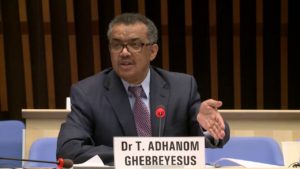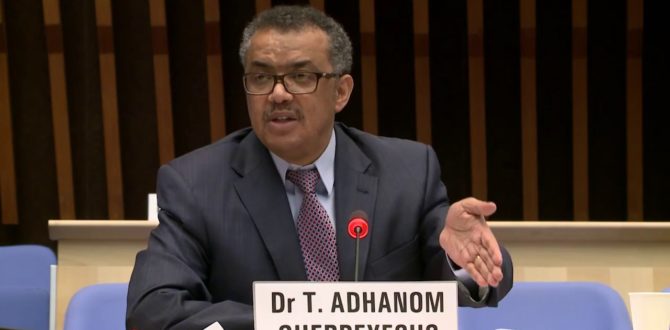By Ndimuh B. Shancho
World Health Organisation has predicted an estimated 81% increase in cancer cases in low- and middle-income countries within the next 20 years if treatment and prevention services are not stepped up.

In a release published on its website, February 4, 2020, the Organisation noted that low and middle income countries have focused attention and “limited health resources” on combating infectious diseases and improving maternal and child health, at the detriment prevention, diagnoses and treatment of cancers. According to the report less than 15% of low-income countries offer comprehensive cancer treatment services, compared to 90% of high-income countries.
This report and modelling, according to the WHO’s Assistant Director General for Universal Health Coverage/ Communicable and Non-communicable Diseases, Dr Ren Minghui, is a wake-up call for all to tackle the unacceptable inequalities between cancer services in rich and poor countries. “If people have access to primary care and referral systems, then cancer can be detected early, treated effectively and cured. Cancer should not be a death sentence for anyone, anywhere,” he reassured.
Headway
Coming on the heels of World Cancer Day (4 February), WHO’s Director General, Dr Tedros Adhanom Ghebreyesus, underscored the need for more research into the scope, potential policies and programmes to improve cancer control and collaborative efforts to save lives.
“At least 7 million lives could be saved over the next decade, by identifying the most appropriate science for each country situation, by basing strong cancer responses on universal health coverage, and by mobilizing different stakeholders to work together,” he said.
To mitigate the occurrence of new cancer cases the world over, WHO recommends some preventive measures, which include controlling tobacco use (responsible for 25% of cancer deaths), vaccinating against hepatitis B to prevent liver cancer, eliminating cervical cancer by vaccinating against HPV, screening and treatment, implementing high-impact cancer management interventions that bring value for money and ensuring access to palliative care including pain relief.
Meanwhile, reports indicate that deaths from cancer have been reduced within the last decades; high-income countries have adopted prevention, early diagnosis and screening programmes, which together with better treatment, have contributed to an estimated 20% reduction in the probability of premature mortality between 2000 and 2015, but low-income countries only saw a reduction of 5%.
According to the WHO report, for everyone to benefit equally in the prevention, early diagnosis and treatment of cancer, countries will have to select treatments balancing considerations including cost, feasibility and effectiveness. Each government is tasked with choosing the appropriate innovative cancer therapies, while recognizing that established treatments, many of which are very effective and affordable, can provide benefits for cancer without causing financial hardship.







